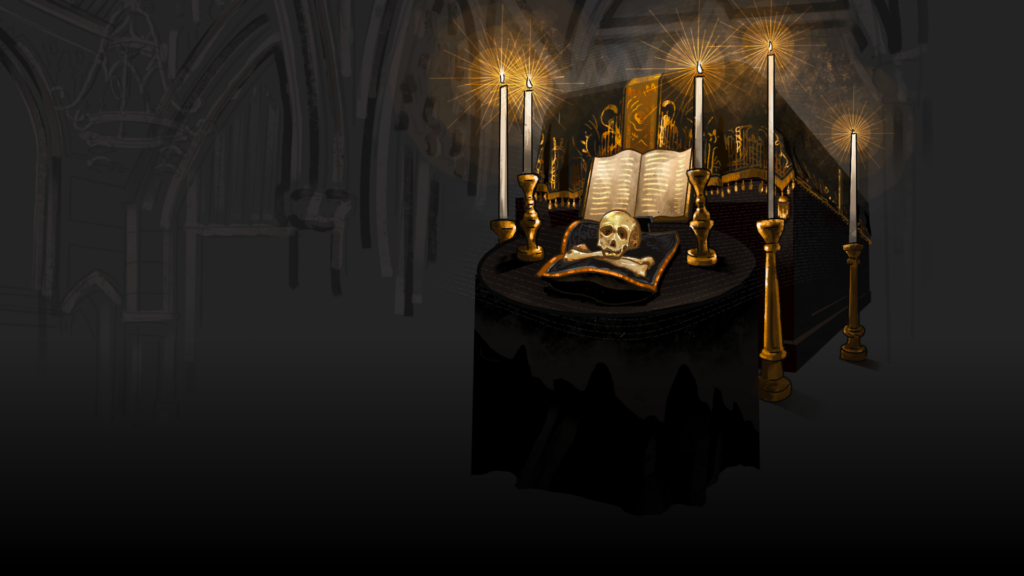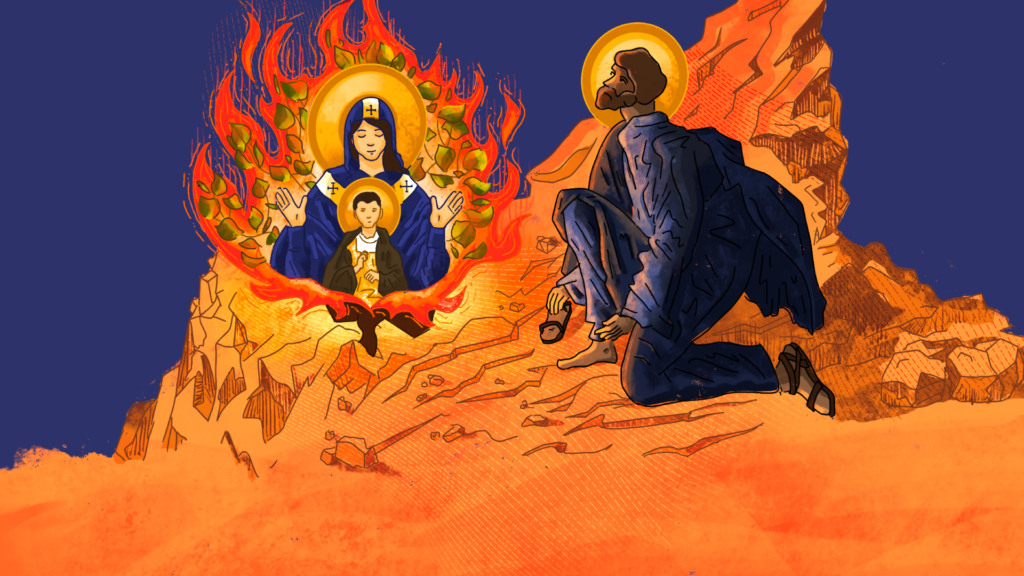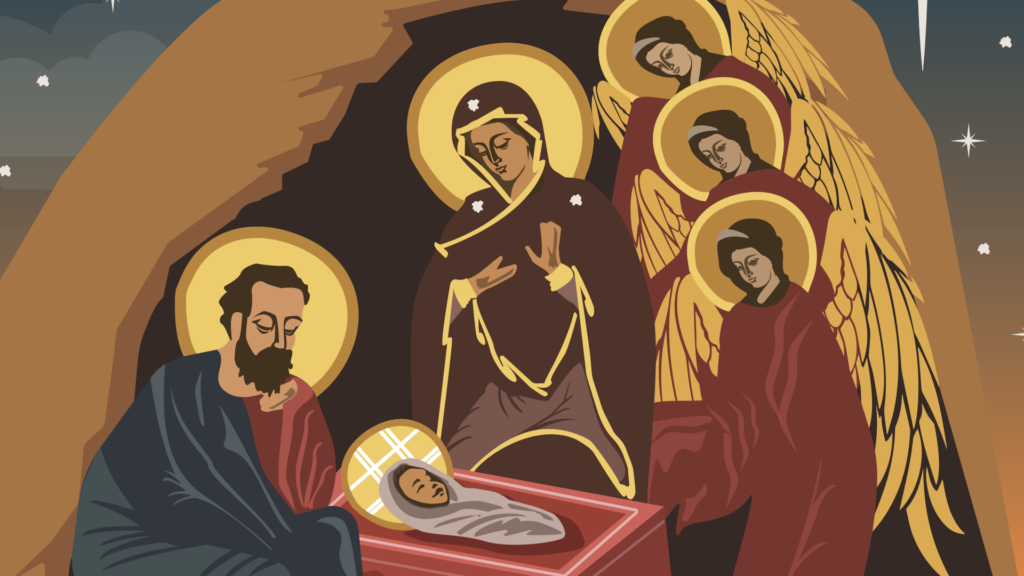There’s nothing like a debate between Catholics and Protestants when it comes discussing saints. Any talk of a forty-day devotional named after a saint may set alarm bells off. St. Michael’s Lent can provide some common ground as it offers a reflection on the Book of Revelation, digging into how it sheds light on the role of the angels in the Christian life and the place of the saints in heaven.
Our invitation to non-Catholics would be: come and read this amazing book of the Bible with us and see what light it sheds on this question.
The Book of Revelation is filled with the protective and punishing activity of the angels. We find them actively engaged on earth as ministers both of God’s justice and mercy. Heaven is not simply apart from us and cut off in the afterlife. Revelation shows us just how intertwined the two worlds are. St. Michael, the one whose name means “like unto God,” is shown as the great chief of the angels in their battle against the enemy, modeling how we too can overcome his attacks by being faithful to God.
We can forget that the word “saint” means a holy one. It is a term used widely in the Psalms and the Book of Daniel, where it refers to the ones who are members of the eschatological Kingdom of the Son of Man (the Messiah). Acts of the Apostles and the letters of Paul use it to speak of Christians, the followers of Christ in this world. In the Book of Revelation, it speaks of the holy ones received by the Lamb after their trials on earth, with martyrs and virgins receiving special attention.
In the Book of Revelation, the term saint speaks both to those undergoing trial and those already before the throne of God. We see how their prayers mingle together in chapter 5: “And when he had taken the scroll, the four living creatures and the twenty-four elders fell down before the Lamb, each holding a harp, and with golden bowls full of incense, which are the prayers of the saints” (v. 8).
The elders, praying with the angels, present the prayers of the saints before God. Later in chapter 18, we see that Jesus triumphed over every evil, giving vindication to the saints of heaven: “Rejoice over her, O heaven, O saints and apostles and prophets, for God has given judgment for you against her!” (v.20).
St. Michael’s Lent is a time of spiritual warfare. It serves as a rallying cry for all Christians to become more attentive to the ways in which the devil seeks to manipulate so that we can respond more effectively to these attacks. We will learn from St. Michael and the whole heavenly host how to put God first and to be faithful to him until the end.
We will band together as brothers, united in prayer and asceticism as the great spiritual arms we need in battle.
Dr. Staudt serves as Director of Content for Exodus and as an Instructor for the Lay Division of St. John Vianney Seminary. He is the author of How the Eucharist Can Save Civilization (TAN), Restoring Humanity: Essays on the Evangelization of Culture (Divine Providence Press) and The Beer Option: Brewing a Catholic Culture Yesterday & Today (Angelico Press). He holds a Ph.D. in systematic theology from Ave Maria University and B.A. and M.A. in Catholic Studies from the University of St. Thomas (St. Paul, MN). He and wife, Anne, have six children and he is a Benedictine oblate.







